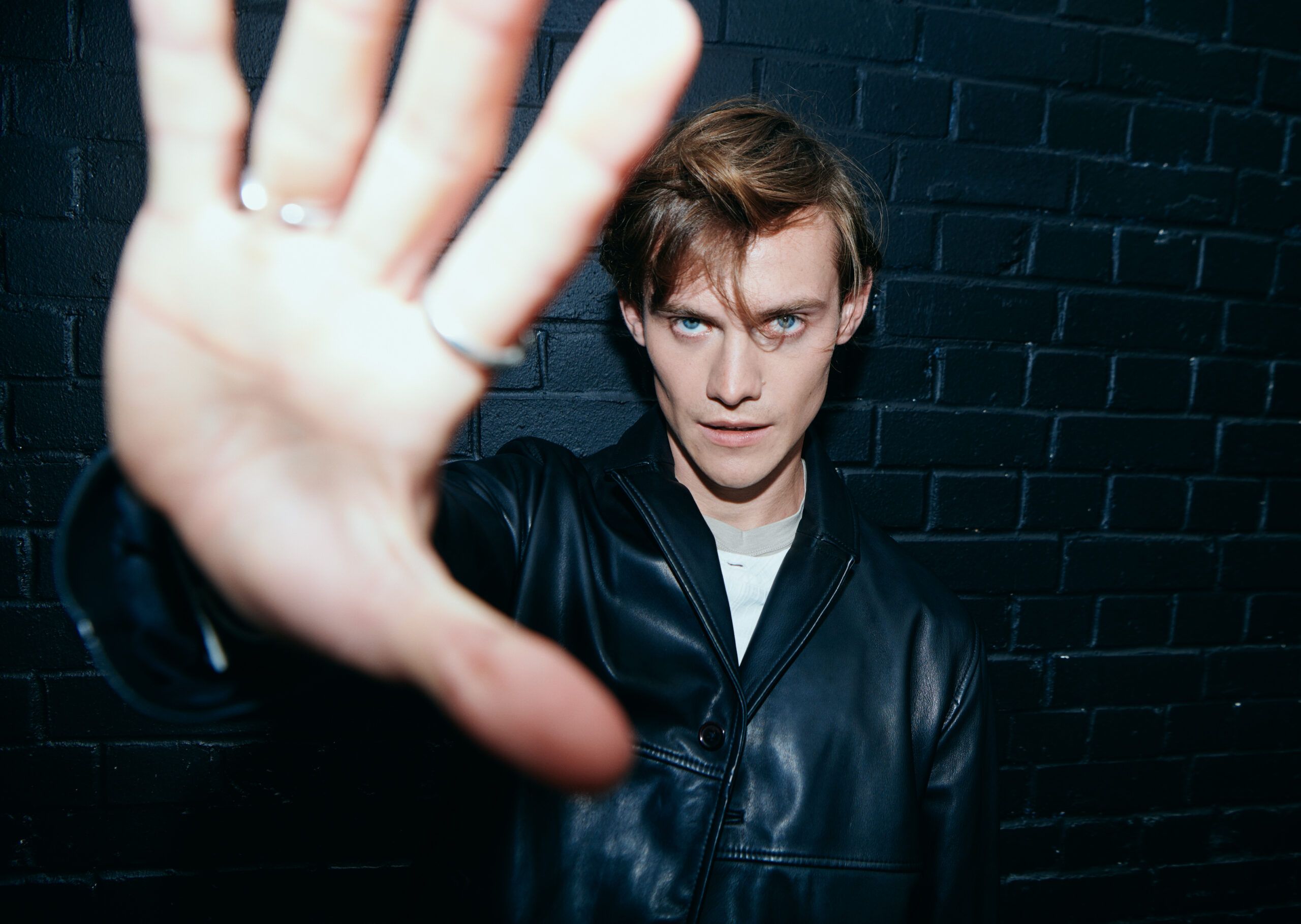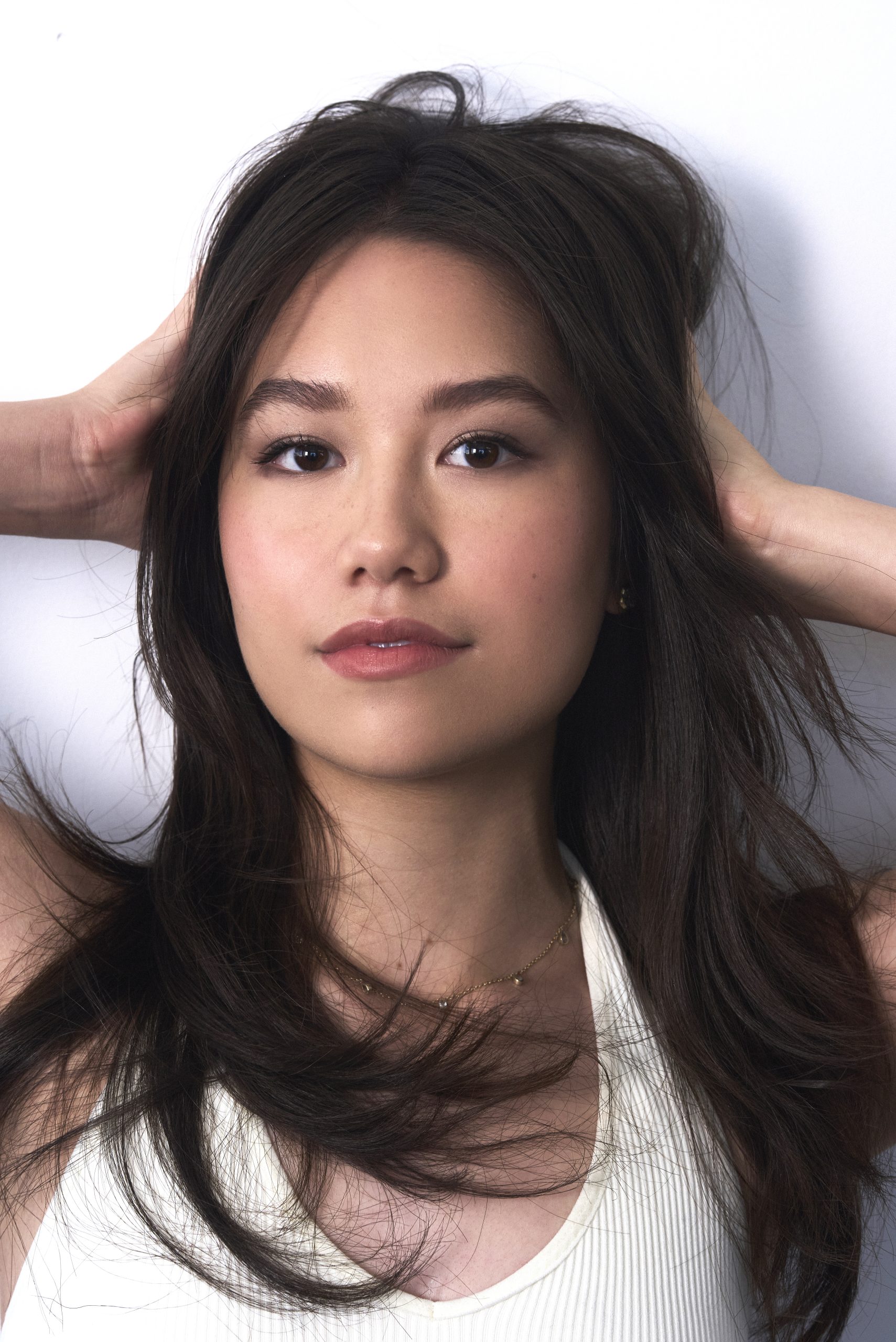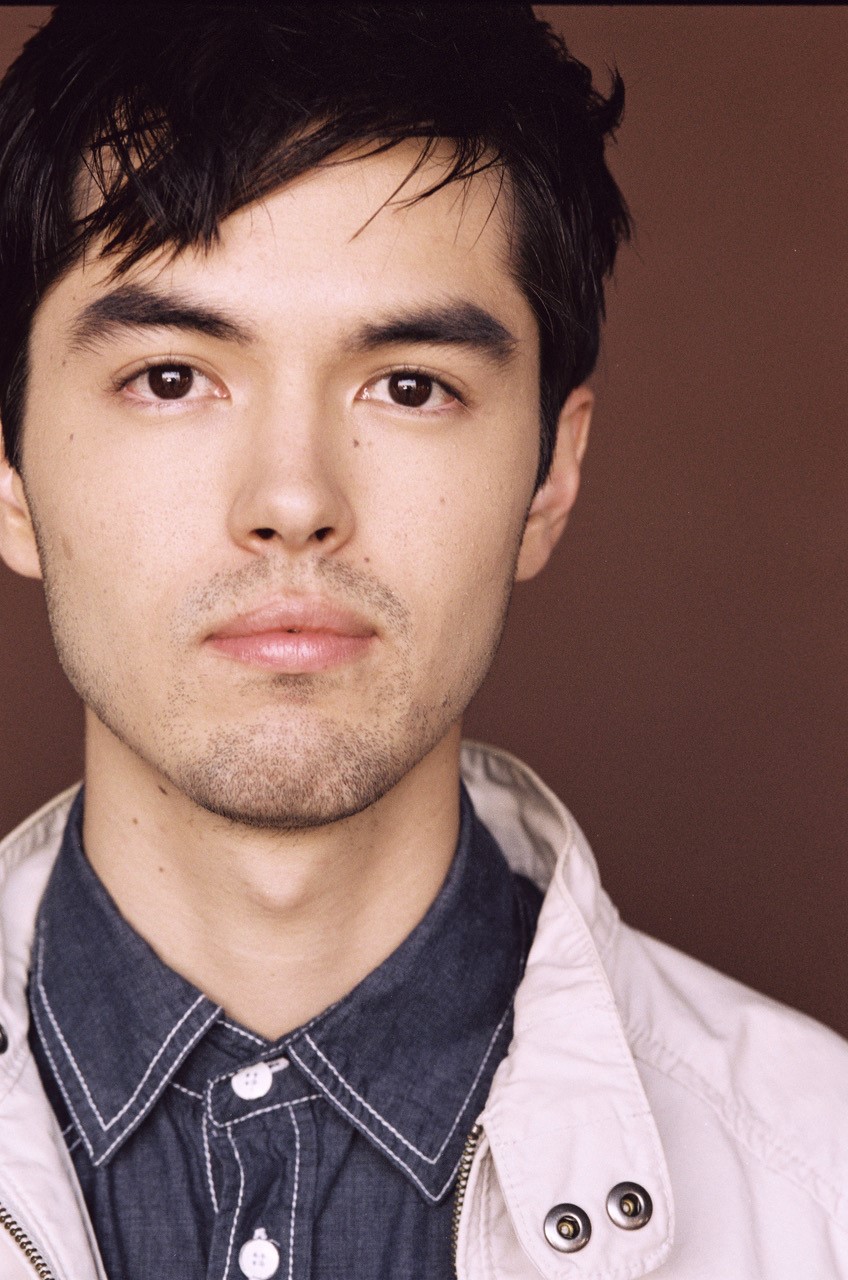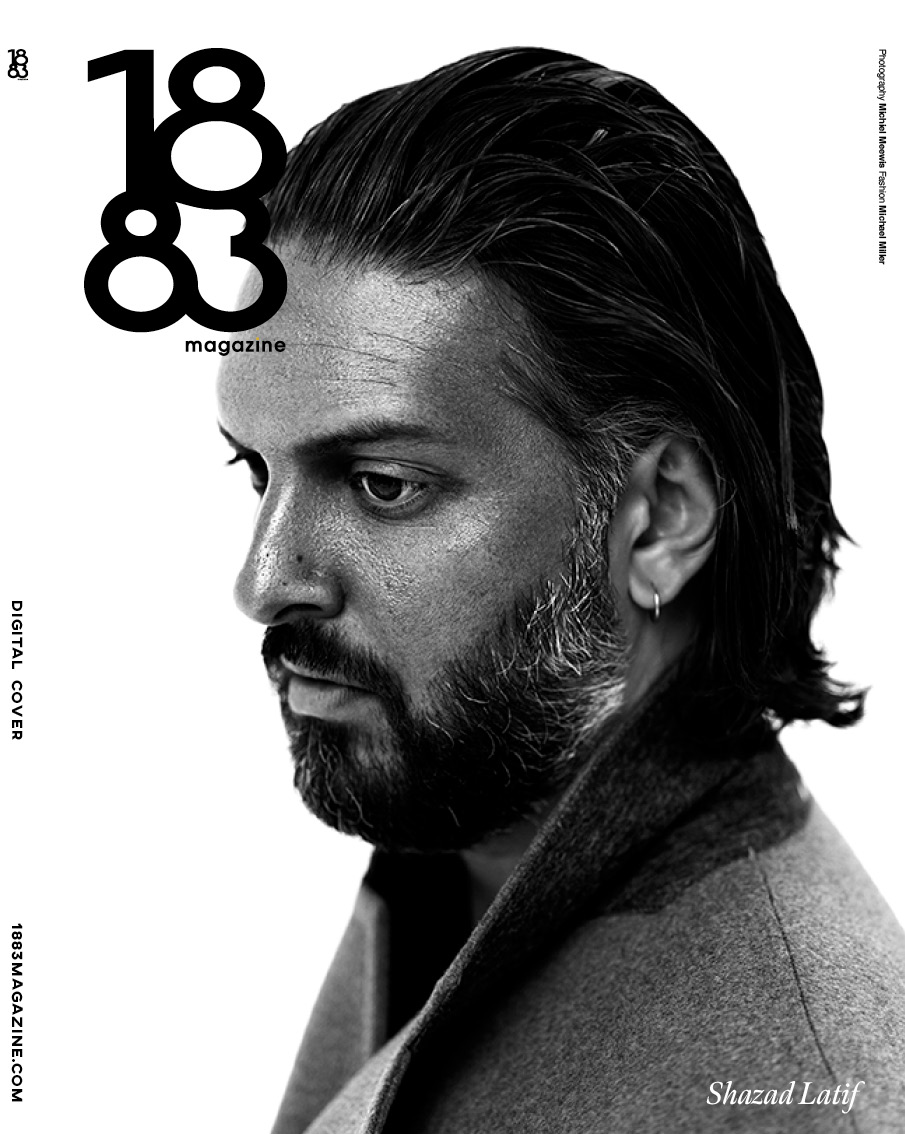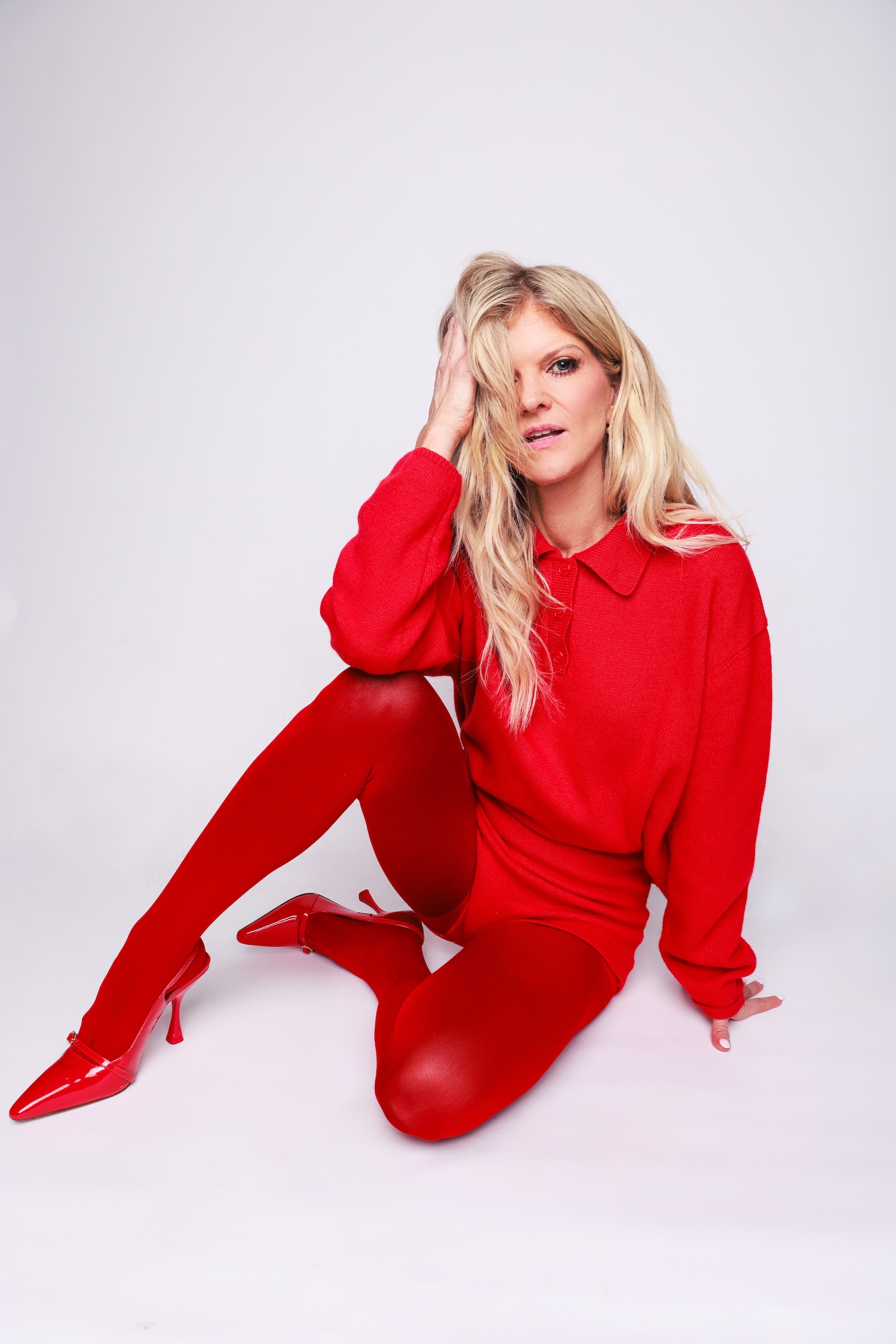AppleTV+’s Foundation may be the first time British actor Cassian Bilton has appeared on TV screens, but it won’t be his last.
In the grand scheme of things, Cassian Bilton would be considered an up-and-coming talent. Most of his credits come from the stage. The British actor’s notable lead roles include Romeo in Romeo and Juliet at the Pegasus Theater, Rosencrantz in Rosencrantz And Guildenstern Are Dead at The O’Reilly Theatre, and Lysander in The Ima Holt International Tour of A Midsummer Night’s Dream. When he made the transition to film critics took notice. Cassian debuted as Kornitzer in The Devil’s Harmony (2019) which won Sundance Jury Award for International Fiction in 2020 and London Critic’s Circle Best Short Film. He also starred in the GSA BAFTA-nominated short film Shoal in which he played Connor.
Cassian’s most recent credit takes him from film to television where he portrays Brother Dawn on AppleTV+’s Foundation. The sci-fi mega-series is an adaptation of Issac Asimov’s beloved seven novel saga (in which each title features the program’s name.) Shot on entirely practical sets and across multiple countries, Bilton calls the project a baptism by fire in the best way. It’s obvious to any viewer that the actor is not only confident in his craft, but at home among the larger-than-life sets and other world environments. What sets Cassian apart, however, is his ability to portray his character, played by two other actors as well, and make it both the same and entirely his own.
1883’s Sydney Bolen spoke with Bilton about what his past credits taught him about playing well-loved characters, his love of the sci-fi genre, and the epic that is Foundation.
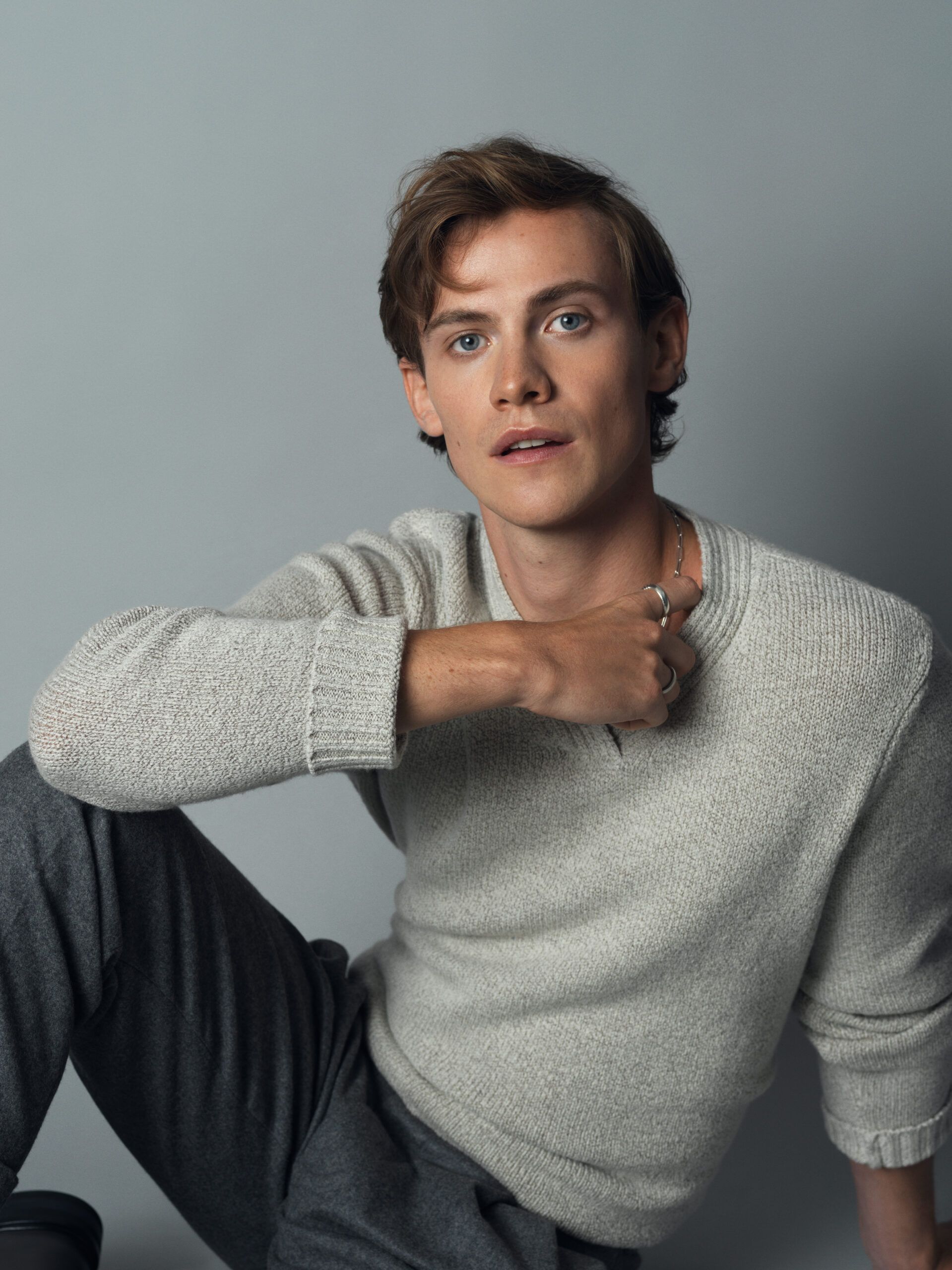
Congratulations on Foundation! I know the program is based on a novel, but what can you tell me about the show for people that may not be as familiar?
The show is a sci-fi epic set over thousands of years. It’s about a man who predicts the downfall of the entirety of civilization as we know it and the friction between him and the leading emperors who have been ruling for some time now and don’t want to change. They’re very much set in their ways, so friction arises when this new scientist comes along and tells them what to do.
That sounds just a tad familiar. [chuckles]
Yeah, it does [laughs]
Just a little. I read that you have read the novels.
I have done, I read all seven of them.
How do you think the original material differs from the one on screen?
It’s different in a lot of ways. Sadly Isaac Asimov [author] didn’t leave us with a screenplay, but he did create an unbelievably detailed and intricate world. What David Goyer, our show runner, has done so successfully is cherry-picked all the best moments and themes–essentially the essence of the books–and translated that to the screen. A lot of what happens in the novels sadly doesn’t happen on screen but will be spoken about instead. David is especially good at bringing the incredibly spectacular moments to the screen and making them visual to an audience who has only imagined them when reading the book.
It’s so hard to adapt books, especially when they’re these Sci-Fi novels that are not only so long but also so well-loved.
Yeah, that was something that united us all going into it. As much as we wanted to make something that would please fans, there was a huge comfort in knowing that David is probably the biggest fan of these books that I know. [laughs]
Oh, really? I love that.
Yeah, it’s nice to be making it as fans as well as making it for fans. I wouldn’t have read all seven books if I didn’t love them.
Oh yeah! Of course. I know about half the season has aired so without giving anything away. I know they are books, but humour me for a minute. Knowing what you do about Brother Dawn’s arc, what is one piece of advice you wish you could give him?
That’s a good question, Sydney.
Thank you! It’s one of my favourites.
Be kinder to yourself. Be gentler with yourself. you can. He’s quite torturous of himself internally. He’s spending a lot of time looking through his life and at his family. He’s in a very dark place when we meet him in the show. You anticipate when he’s interacting with his family that there’s a part of Dawn that wants someone to turn around and notice that he’s in a bad place, but nobody ever does. As a result, he turns it all in on himself. So, I’d tell him to just be gentle with himself.
Do you find it difficult to play a character in that kind of headspace?
I wouldn’t say difficult necessarily. I’m a pretty happy and carefree person, but I think we’ve all experienced times when we’re hard on ourselves. Dawn is that the extremity because he’s purposefully isolated from the rest of the galaxy. He and his two brothers rule over trillions of people and he only interacts with about three or four people he’s supposed to love. The rest are staff who serve him. I think he feels incredibly isolated, which we all felt in various degrees during COVID. I’ve felt lonely, but I’ve never felt that level of isolation. As you’ll see in the show, he doesn’t have an easy time.
I can only imagine. It’s a big-time for Sci-Fi right now, Dune just came out. Foundation is airing. Netflix recently dropped Jupiter’s Legacy. These stories have such large fanbases from the original media, did it feel like you had big shoes to fill?
I definitely felt like I had big shoes to fill, without question. No sci-fi at least in my experience has really been done on a small scale. You ask people when they’re walking down the street what Sci-Fi is and the go, “It’s Star Wars. It’s Avatar. It’s Terminator.” These things are moments and events more than they are films. But, I think there’s something quite energized and quite galvanizing about knowing there are people behind you and those people have historically loved these books so much that there was always going to be a time where they thought, “Oh, I’d love to see what this would look like.” Because everybody has images of this world in their head, but there’s something so exciting about seeing it brought to life for the first time.
Are you a fan of the genre yourself?
Yeah, I’m a big fan. [chuckles] I’m a very big fan. I like Alex Garland’s films in particular. Ex Machina is probably one of my top favourite films. Also Denis Villeneuve as well. Arrival is one of my favourite sci-fi films. Maybe 2001 [A Space Odessey] as well.
Really? 2001?
Yeah, I’m just nerding out in front of you now. [chuckles]
Oh, t’s fine. I am a big nerd. I lean more toward the superhero stuff, but I’m really into that. I get it I totally get it.
Cool. When I got this job I thought, “Okay, wow. This is it.” Yes, right now we’re experiencing a bit of a sci-fi moment, but the shows are on such a scale as an actor you just think, “ That’s what other actors do.” You never think you’ll be in a position to be walking on to the kind of sets that I’ve been working on for foundation. It’s been a gift.
Yeah. For my own curiosity, how many of the sets are practical, and how many are green screen/visual effects?
I didn’t work with a green screen. Everything was practical.
Wow, that’s so cool.
Yeah! You’d occasionally have an enormous set, and then they’d go, “okay well this needs to be the size of 30 story building, so we’re gonna put some green screen at the top to expand it.” But for the most part, it was all practical. It made our job as actors a lot easier.
I can imagine. That’s so fun.
It was the same with locations. We shot in a half dozen countries in the end. It adds a lived-in and textural quality to the show. I think sometimes sci-fi can fall into the trap of having just a green screen. It’s amazing what can be done on computers, but I think audiences can tell. I saw Dune a few days ago. I felt the same thing watching it. There’s something about the practical sets and the real locations that make you feel a lot more connected to the story as an audience member.
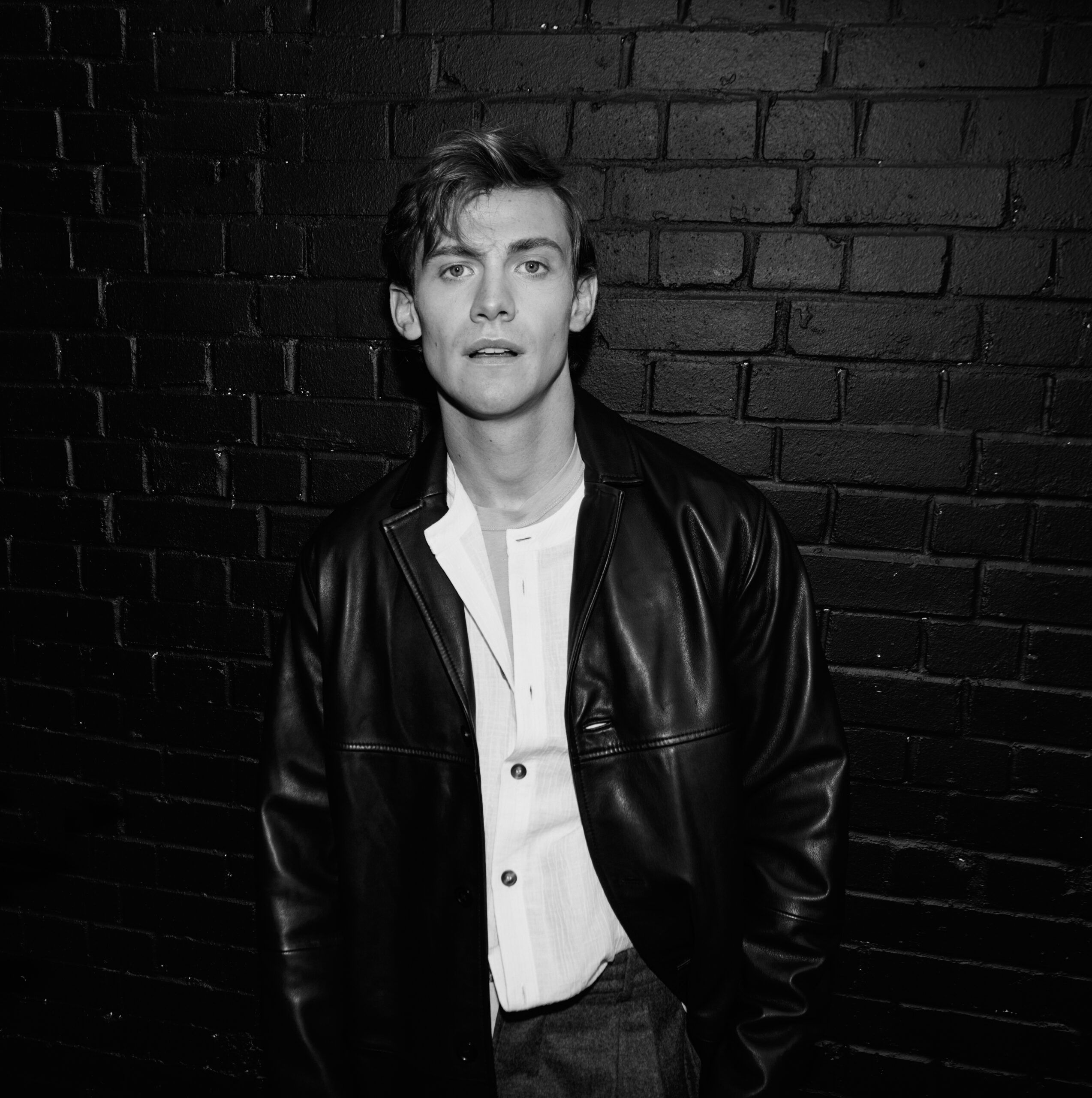
Yeah, I agree. As a fan of the genre, when you were reading the script, did you know which character you were auditioning for and if so, what drew you to the part?
I did and I didn’t. I remember my part was written in code names. I wasn’t given that much information about the show. I was told that the character is this cloned version of a man who was so arrogant he wanted to perpetuate his rule forever. Why not only have one of him but have three of him? It’s like me going, “I’m so great in my life. I’m going to have a younger Cassian sitting on my left and an older Cassian sitting in my right and they are going to be in charge forever.” It was less the idea of power that excited me and more the idea of three actors playing the same part together. I think we’ve seen that in films like Moonlight when you see, the younger version of a character and then the story evolves into the older version. But, in our show, the older version of a man is having dinner with his younger self, as well as his older self. I can’t turn that down. I’m never gonna get that phone call again. No one’s ever going to say to me, “you play a character, opposite someone as brilliant as Lee Pace and Terrence Mann, and you’re all going to play the same character and yet find your own approach to him.”
Did you work with them to come up with groundwork for the character?
Yes and no. I come into the show on episode three. They had started shooting episodes one and two when I got cast. David, really generously and smartly, flew me out as soon as I got cast, so that I could watch Terry and Lee and see the work they’d already done. They were working with a younger actor, Cooper Carter. I would sit on set and have my headphones on and have a monitor and watch them and choose to steal things from them. I think the joy of the show is seeing where these clone versions of this person match up and where they break away. It’s a bit like jazz music. You learn all the rules, and then choose to break them. David inviting me to set to watch them work was where I found my feet.
Now that you mentioned Jazz Music I’m just gonna be thinking about La La Land all day.
[laughs] This is very different from La La Land.
I know. It’s just where my brain goes when someone says jazz music now. It’s taken over. Speaking of playing iconic characters that people already know, you’ve done your fair share of Shakespeare roles. What is it like to play characters such as Romeo and Lysander that so many people are familiar with?
I think there’s freedom to those roles since so many people have played them. It’s not like playing Batman. It’s not like going up against Christian Bale or Michael Keaton. Thousands of people have played Romeo. So there’s freedom in that. I find it quite liberating. I think a lot of the time in our industry people try to be unique in these roles. The easiest way to do that is to bring yourself, bring your personal history to the role. If I just do my Romeo, it’s naturally going to be distinct by virtue of the fact that it’s me doing it.
Yeah, that was actually what I was gonna ask next. Do you tend to try and stay towards the characteristics of the character that people are familiar with or do you try to make them your own?
A bit of both. I do a strange thing. I can’t work out if I’ve worked out how to be an actor yet or I’m still working out. I think it’s definitely the latter because all the actors I talk to say they’re still working out. Occasionally, with those roles, I’ll watch that every Romeo I can find online or I’ll go and see the play. Then I’ll go back to the script and go, “oh, that person did that. I’ll steal that.” Someone once said, “acting is just theft.” [chuckles] I don’t know if it is, but there’s an element of stealing. There’s also an element of not thinking about Romeo as an idea, but looking at the page and trusting the script again. People have an idea of who Romeo and Juliet are. People dress it up as a romantic story when it’s a story about two s teenagers with mental health
I agree! I’ve never really got the whole “Romeo and Juliet is the greatest love story” thing.
It’s not that at all.
Prior to Foundation, you made your acting debut in The Devil’s Harmony (2019) which won Sundance Jury Award for International Fiction in 2020 and London Critic’s Circle Best Short Film and starred in the GSA BAFTA-nominated short film Shoal (2020), how does it feel to already have such highly acclaimed credits on your roster?
It’s great. I was very lucky when I started. Dylan [ Holmes Williams, the director and writer] was a friend I went to Uni with. He asked if I wanted to be in a horror film about an acapella club. I was like, “that sounds crazy. Why not?” We made the film. About two years later, I saw that it won at Sundance. So that was just a mad result of doing a film with someone I knew a Uni.
Oh, how cool.
Then Shoal came around. The film is about a murder in a fishing village. So I went and lived in a caravan in Scotland for two weeks gutting fish every day. It was lovely. It sounds horrible [laughs], but in my memory, it was a lovely experience.
It’s nice to hear that to you, at least with The Devil’s Harmony, it was just making a film with a friend.
Yeah, it’s a far cry from Foundation. [chuckles]
You made quite a jump there.
Yeah, it was definitely a baptism by fire in the best way.
It sounds like a lovely environment. Now that you’ve made the jump to film from the stage, do you find that you prefer one medium to the other, or do you think you’ll be one of those actors that just naturally go back and forth?
I think I’ll naturally go back and forth. Since the pandemic happened my relationship with theatre has been difficult because I haven’t been to the theatre much. The theatre community has had such a tough time in the states as well as here. I used to go to the theatre two or three times a week. I was very much in the theatre world of London. But, since the pandemic happened I’ve been watching so much TV and so much film. I think it tends to be the thing you’re working in is what you’re addicted to. I’m going back to shoot the second season of foundation soon. That will be my world for about six months. I’m sure when I come out of it, I’ll want to do a play. [chuckles] I’m also sure that once I do a play, I’ll want to do a film. I’d love it. It would be a gift if I end up jumping between both of them for the rest of my career. That’s the dream.
Essentially, I just want to keep learning, Sydney. As long as I’m learning to do new things and challenging myself, that’s really the place I want to be in. It’s about where scripts are as well. If there are some great scripts in TV or in film or theatre, I’ll follow those. I’ll follow the work and the medium will come. But I can’t see myself giving up the stage. it’s my home. It’s where I started, so I’m not going to abandon it.
I get that. Do you find your technique as an actor changes from stage to screen or do you feel like you’re doing the same thing in a different place?
It changes. It’s like being a marathon runner or sprinter. That’s the best way to describe it. It’s like going from zero to sixty very fast and to a place in minutes as opposed to hours. There’s suddenly really invigorating about setting up in a theatre. There’s the seven o’clock call and then your iin it for three hours. You don’t get when you’re acting on screen. But, there’s something about the spontaneity of the screen and the sharpness of it. It feels real when you can get it right. At the end of the day, the nuts and bolts are the same.
When you first did film did you miss the live audience aspect?
I did. When I first did film, I felt really stupid because I was so young and thought, “okay. Well, the crew in the audience.” They aren’t. They’re working. They’re not looking. There’s a delay to film you don’t get with stage work. There’s something about trying new things with a live and seeing how they land that you didn’t get on film. However, there’s also something so exciting about working with all the other parts of production at the same time and going to monitor and seeing how things land and how things are framed that’s exciting. I missed it, but now, at least for Foundation, I’ve been excited to see what the world makes of the whole piece. Weirdly, film allows you to take more risks because you’re like, “they’re not going to be eyes on this for a long time, so I can risk this and risk that.” I’ve meandered off your question. [laughs]
No! You answered and then you gave me more to work with. [laughs] My final questions are just fun ones — now that you’ve done the Foundation, which is a massive sci-fi project in its own right if you could choose a leading role in any of the iconic movie franchises like Marvel, DC, Star Wars, and Jurassic Park, which one would you choose, what kind of character would you want to play, and why?
Am I meant to pick a part that has been played by someone already?
You can or you can make up your own. There are no rules to this question. It’s mainly for my nerdy curiosity.
It’s got to be something in Star Wars and it’s got to be with the bad guys.
I get Star Wars villains a lot when I ask this question.
I’d like to do something in the Kylo Ren territory. I think Adam Driver is wicked. Maybe if there’s some sort of Kylo Ren spin-off like an origin story.
I think everybody would be down to watch that, to be honest.
Yeah. He’s a character that I really connect with that is played by an actor that I admire. He grounds those films. I think he’s really cool. Get me on set with Adam Driver, Sydney. That’s what I’m saying.
Alright, I’ll do my best. [laughs] To close, I noticed from your Instagram that you’re a big film fan. What are your top five favorite movies?
Okay. [chuckles] No pressure. Tom Ford’s A Single Man [2009] is my favorite film. Darren Aronofsky’s Requiem for a Dream [2000] is up there. I really like Spike Jonze’s Her [2013]. Jonathan Dayton and Valerie Faris’ Little Miss Sunshine [2006] is a winner. Wong Kar- Wei’s film In The Mood For Love. How many have I done?
You’ve done five, but I was gonna let you do six.
[laughs] There you go. There are five.
Foundation is streaming now on Apple. Follow Cassian Bilton at @cassianbilton.
Interview by Sydney Bolen
Photographer Joseph Sinclair

